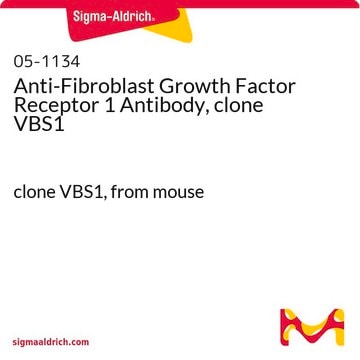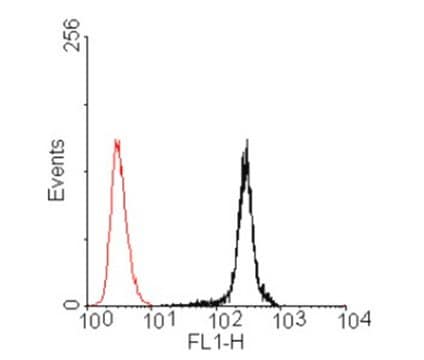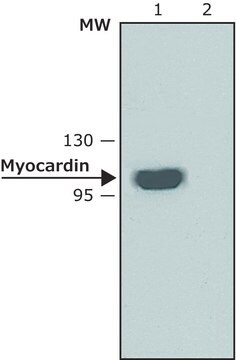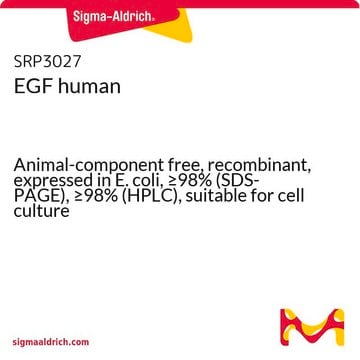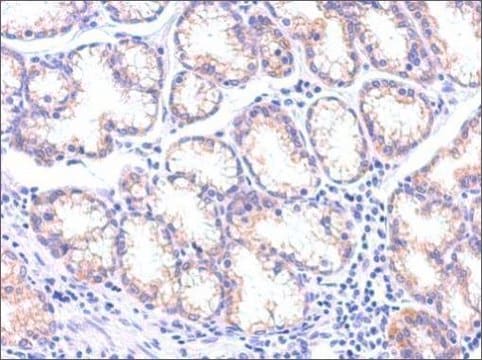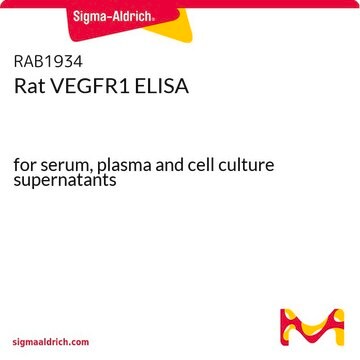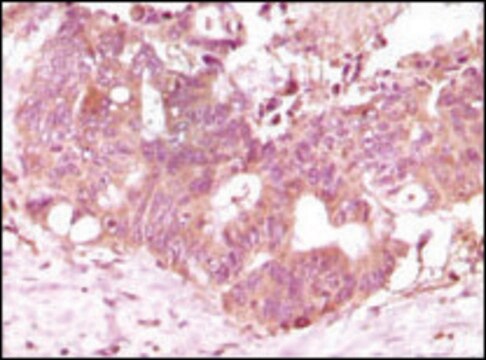F3393
Anti-Fibroblast Growth Factor-Basic (1-24) antibody produced in rabbit
fractionated antiserum, lyophilized powder
Synonym(s):
Anti-FGF2, Anti-bFGF
About This Item
IHC (p)
WB
indirect ELISA: suitable
western blot: 1:1,000
Recommended Products
biological source
rabbit
Quality Level
conjugate
unconjugated
antibody form
fractionated antiserum
antibody product type
primary antibodies
clone
polyclonal
form
lyophilized powder
species reactivity
human, bovine, rat
technique(s)
immunohistochemistry (formalin-fixed, paraffin-embedded sections): suitable
indirect ELISA: suitable
western blot: 1:1,000
impurities
endotoxin, tested
UniProt accession no.
application(s)
research pathology
storage temp.
2-8°C
target post-translational modification
unmodified
Gene Information
bovine ... FGF2(281161)
human ... FGF2(2247)
rat ... Fgf2(54250)
General description
Immunogen
Application
- immunohistochemistry
- immunostaining
- immunoblotting
Biochem/physiol Actions
Physical form
Analysis Note
Disclaimer
Not finding the right product?
Try our Product Selector Tool.
recommended
related product
Storage Class Code
11 - Combustible Solids
WGK
WGK 3
Flash Point(F)
Not applicable
Flash Point(C)
Not applicable
Personal Protective Equipment
Choose from one of the most recent versions:
Certificates of Analysis (COA)
Don't see the Right Version?
If you require a particular version, you can look up a specific certificate by the Lot or Batch number.
Already Own This Product?
Find documentation for the products that you have recently purchased in the Document Library.
Customers Also Viewed
Our team of scientists has experience in all areas of research including Life Science, Material Science, Chemical Synthesis, Chromatography, Analytical and many others.
Contact Technical Service